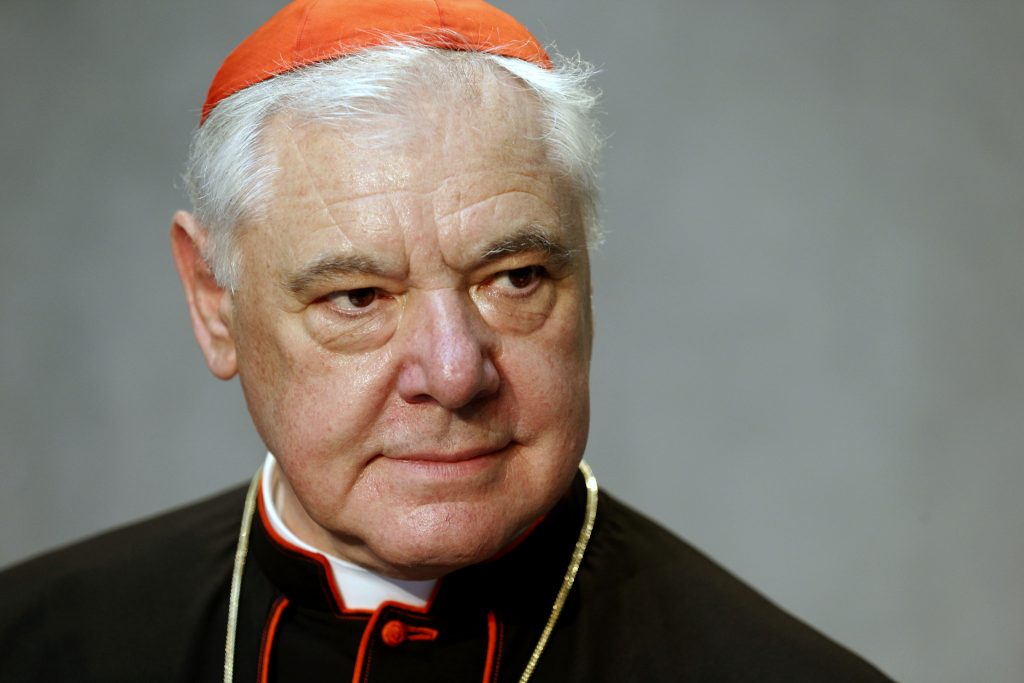
By Cindy Wooden
Local bishops have an obligation to welcome new movements and communities and guide them, while groups have an obligation to obey the local bishop and avoid the appearance of setting up a parallel church, according to a new Vatican document.
The Congregation for the Doctrine of the Faith’s letter to bishops around the world on “the relationship between hierarchical and charismatic gifts in the life and mission of the Church” was released on 14 June.
The hierarchical gifts – teaching, sanctifying and governing – are those conferred with ordination.
The charismatic gifts refer to those given by the Holy Spirit to groups or individuals to help them live the faith more intensely and to share the faith with others through missionary activity and acts of charity.
At a Vatican news conference, Cardinal Gerhard Muller, doctrinal congregation prefect, and Cardinal Marc Ouellet, prefect of the Congregation for Bishops, presented the document, which formally is titled Luvenescit Ecclesia (The Church Rejuvenates).
Faced with the reality of ageing and death, men and women always have “looked for something or someone to help them remain young”, Cardinal Muller said.
“This is the same challenge that every institution that wants to last must face: remaining young with the passing of time; that is, renewing itself while remaining what it is without changing or altering” its basic identity.
The gifts of the Holy Spirit – raising new movements to face new challenges – help the Church to remain ever young, he said.
Cardinal Ouellet told reporters some suspicion of new, charismatic movements on the part of the institutional Church can be traced back centuries: to the second-century Montanist heresy, which claimed new revelations, and the widespread “apocalyptic doctrines” of the Middle Ages.
However, he said, the Second Vatican Council insisted the Holy Spirit continues to give Christians gifts to be placed at the service of the entire Church to attract believers and help them proclaim their faith.
Still, Cardinal Ouellet said in response to questions, “there have been some problems” throughout Church history of new groups arising and setting themselves up as a “counter power to the bishops”.
Cardinal Muller added that a vision of the Church in which the bishops control everything “is not our vision. Bishops are not the superiors, the commandants of the gifts of the Holy Spirit – the Holy Spirit is”.
The new document insisted that both the hierarchical and charismatic gifts are given by God in order to build up the Church. They always must be in harmony and complement one another.
The bishop, “he who has received the gift to lead in the Church, has also the responsibility of keeping watch over the good exercise of the other charisms, in such a manner that all contribute to the good of the Church and to its evangelising mission”, the document said.
The text focused on a theological explanation of the diverse gifts in the Church rather than on practical challenges and steps to meet those challenges.
However, one of the footnotes, summarising the discussion of gifts of the Holy Spirit in St Paul’s First Letter to the Corinthians, warned of “rivalry, disorder and confusion” when an “overabundance” of gifts are expressed in a community, the risk of an “inferiority complex” among “less gifts Christians” and the temptation of “pride and arrogance” on the part of those who receive the gifts.
At the same time, the document insists that faith in God implies welcoming the gifts of the Holy Spirit, which are given to individuals and groups to deepen the way they live out their Christian vocation and witness.
The groups, the document said, are called “to a missionary openness, to the necessary obedience to pastors and to maintain ecclesial communion”.
Movements and communities present in more than one diocese “must not consider themselves as completely autonomous from the particular church” or diocese, it said, “rather they should enrich and serve Her precisely through that particularity which is shared beyond the confines of a single diocese”.
The bishops, it said, are called to discern the authenticity of the spiritual gifts and to recognise publicly those movements and communities that can help the faithful grow in faith, hope and charity.
However, it said, they must avoid trying too hard to control the groups, employing “juridical straitjackets that deaden the novelty which is born from the specific experience”.
The criteria for determining the authenticity of the gifts or charisms given to a movement or community, the document said, must include: emphasis on every Christian’s vocation to holiness; commitment to spreading the Gospel; profession of the Catholic faith; unity with the entire Church; respect and esteem for other groups in the Church; accepting “moments of trial” as the bishop discerns the group’s authenticity; presence of spiritual fruits such as charity, joy, peace; and commitment to justice and peace with charitable, cultural and spiritual works.